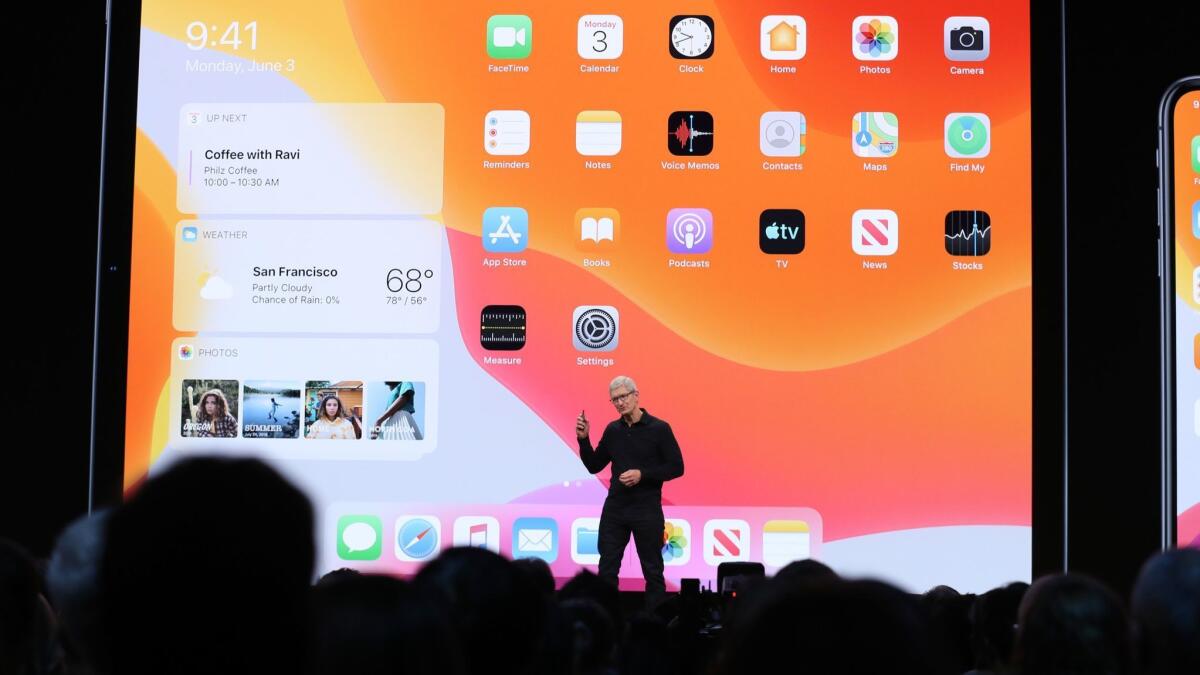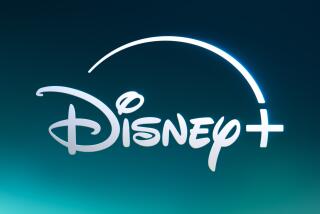Apple replaces iTunes on Mac with three separate apps

When the iTunes Music store debuted 16 years ago, digital music meant buying a CD and uploading it to a computer or illegally downloading a song from a file-sharing service. Apple changed all that by charging customers 99 cents for a song they could take with them wherever they went.
Over time, iTunes expanded into movies and podcasts, storing all forms of media in a single desktop application.
But that’s not what today’s customers want, and on Monday, Apple replaced its pioneering store on the Mac and integrated its library and store into three distinct apps — music, podcasts and TV. The push comes as the tech giant races to catch up in the arena of subscription streaming services, which already has household names such as Spotify and Netflix.
“I see it as a logical, overdue realignment of media strategy,” said Gene Munster, a managing partner with venture capital firm Loup Ventures. “Segmenting into apps makes most sense and helps them sell services.”
Industry insiders have long predicted the iTunes Store’s eventual demise as streaming media came to prominence and consumer tastes shifted.
“Customers love iTunes and everything it can do, but if there is one thing we hear over and over it’s ‘Can iTunes do even more?’” said Craig Federighi, senior vice president of software engineering, at the keynote speech kicking off Apple’s annual Worldwide Developers Conference in San Jose on Monday. He showed what iTunes would look like if it integrated features like a calendar or email, but ultimately his team had a “better idea” — spread the features across three apps for Mac users.
RELATED - The end of the iTunes era: The life and death of Apple’s curator-in-chief »
When Mac users download the new operating system Catalina later this year, iTunes will no longer be on their desktop. Instead, users will go to the Music app to find their library of iTunes songs and the TV app to find their iTunes shows and movies. Downloaded audio stories will be found in the Podcasts app. IPhone users will still be able to access the iTunes Store app on their devices.
Apple might use the shift to expand subscription businesses in each app. The change might also allow Apple to focus on more customized features for each of its apps so they can better compete against their more specialized rivals.
“It’s streaming competitors that have jolted the model,” said Daniel Ives, managing director of equity research at Wedbush Securities. “The department store approach is not working in today’s streaming environment, where Apple is not the only game in town.”
Although Apple dominated the space for digital music purchases in its heyday, streaming music companies have hurt iTunes’ business, pushing Apple to launch a subscription music service of its own, Apple Music, in 2015. Today, Apple Music has grown to more than 50 million paid subscribers, but it’s still just half the amount of Spotify’s global paid subscribers.
Marty Tudor, chief executive of Base Hologram Productions, said he’s a Spotify subscriber because he thinks it’s easier to discover music on its platform. But he has used iTunes on his Mac to access his many terabytes of music.
He says getting used to the Music app instead of iTunes on the new Mac operating system will depend on the interface.
“If it’s complicated, it’ll be a problem,” said Tudor, 64. “If it’s just like my phone, then I’ll totally be comfortable with it.”
Meanwhile, digital music purchases continue to decline. Last year, streaming represented 75% of all music industry sales, according to the Recording Industry Assn. of America. Digital downloads of albums or songs plunged from 42% in 2013 to just 11% in 2018, according to RIAA’s report.
Jason Fiore, 33, said he’s excited about the dismantling of iTunes. It has been around for so long, and given the way people stream music, the changes make sense, he said.
“It’s been building up feature after feature after feature,” Fiore said. “I think it makes sense to take that overloaded application and break it out into separate, more simple and more focused media applications.”
RELATED: Apple will shut down iTunes, ending the download era, report says »
Apple is under pressure to increase revenue as iPhone sales have declined. The flagship smartphones represent the majority of Apple sales, and the company has been looking to diversify. A major goal is to grow its services businesses to roughly $50 billion in 2020, up from $37 billion in fiscal 2018.
That category includes subscription services in gaming and news. Later this fall Apple will also launch subscription service Apple TV+, which will feature original series and films involving prominent celebrities including Oprah Winfrey. Apple has not yet announced pricing for that service.
Though the announcements bring few changes to iPhone users, Ives thinks the iTunes Store mobile app could eventually go away too as Apple moves toward stand-alone services. Mac users who don’t update to the new Mac Catalina operating system and people who access iTunes through Microsoft Windows won’t be affected by the change.
Customers who still like to purchase songs can do so in the Mac Catalina operating system through the Music App, where they’ll find a version of the iTunes Music Store tucked away.
The changes surrounding iTunes were part of a string of announcements on the first day of Apple’s Worldwide Developers Conference, an event geared at encouraging developers to keep building apps for Apple’s ecosystem.
On Monday, Apple also announced a new Mac Pro desktop computer that will sell starting at $5,999. The company also said its upcoming mobile operating system update, iOS13, will have a dark mode available to third-party apps and let users sign in to apps with their Apple ID. If Apple customers don’t want to give an app their email address, iOS13 has a feature that lets customers share a unique random email and receive messages to that address in their personal email account.
Lee reported from San Jose. Hussain reported from El Segundo.
More to Read
Inside the business of entertainment
The Wide Shot brings you news, analysis and insights on everything from streaming wars to production — and what it all means for the future.
You may occasionally receive promotional content from the Los Angeles Times.








